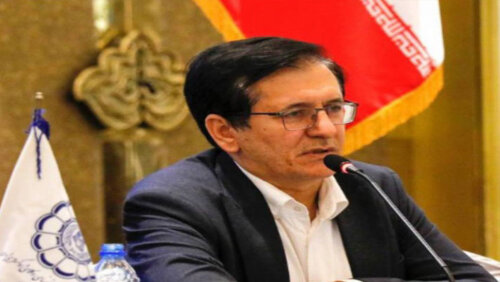Best Trusts Lawyers in Iran
Share your needs with us, get contacted by law firms.
Free. Takes 2 min.
Or refine your search by selecting a city:
List of the best lawyers in Iran
About Trusts Law in Iran
Trusts in Iran are governed by the Civil Code and Islamic Law. A trust is a legal arrangement where a person, known as the settlor, transfers property to a trustee for the benefit of one or more beneficiaries. Trusts are commonly used for estate planning, asset protection, and charitable purposes in Iran.
Why You May Need a Lawyer
You may need a lawyer specializing in Trusts in Iran for various reasons, such as creating a trust, interpreting trust documents, resolving disputes among trustees or beneficiaries, and ensuring compliance with local laws and regulations.
Local Laws Overview
In Iran, trusts are subject to the Civil Code, which outlines the rules and regulations governing the establishment and administration of trusts. Islamic Law, as interpreted by the Iranian legal system, also plays a significant role in shaping trust law in the country. It is essential to consult with a lawyer familiar with these laws to ensure your trust is valid and legally enforceable.
Frequently Asked Questions
Q: What is a trust?
A trust is a legal arrangement where a person transfers property to a trustee to hold and manage for the benefit of one or more beneficiaries.
Q: How do I create a trust in Iran?
To create a trust in Iran, you need to draft a trust deed setting out the terms and conditions of the trust, appoint a trustee, and transfer property to the trustee for the benefit of the beneficiaries.
Q: What are the different types of trusts in Iran?
Common types of trusts in Iran include revocable trusts, irrevocable trusts, charitable trusts, and discretionary trusts.
Q: Can I change the terms of a trust in Iran?
Depending on the type of trust and the provisions in the trust deed, you may be able to amend or revoke a trust in Iran. It is advisable to consult with a lawyer to understand your options.
Q: How are trusts taxed in Iran?
Trusts in Iran may be subject to income tax, capital gains tax, and other taxes depending on the nature of the trust and the income generated. It is essential to seek advice from a tax professional to ensure compliance with tax laws.
Q: What are the duties of a trustee in Iran?
Trustees in Iran are required to act in the best interests of the beneficiaries, manage the trust property prudently, avoid conflicts of interest, and comply with the terms of the trust deed.
Q: Can a trustee be removed in Iran?
Under certain circumstances, a trustee may be removed by the court or by the beneficiaries of the trust in Iran. Grounds for removal may include breach of fiduciary duties, incapacity, or conflict of interest.
Q: How can I protect my assets using a trust in Iran?
Creating a trust in Iran can help protect your assets from creditors, legal claims, and probate proceedings. By transferring assets to a trust, you can ensure their safekeeping and facilitate their distribution to your chosen beneficiaries.
Q: What happens to a trust in Iran if the settlor dies?
Upon the death of the settlor, the trust in Iran may continue to exist under the terms of the trust deed. The trustee will typically manage the trust property and carry out the settlor's wishes for the beneficiaries.
Q: What are the legal requirements for creating a valid trust in Iran?
In Iran, a valid trust must satisfy certain legal requirements, including having a competent settlor, a trustee capable of holding property, identifiable beneficiaries, and a lawful purpose for the trust.
Additional Resources
For additional information on trusts in Iran, you may consider contacting the Iranian Bar Association, the Ministry of Justice, or trusted legal firms specializing in Trusts law.
Next Steps
If you require legal assistance with trusts in Iran, it is advisable to consult with a qualified lawyer specializing in Trusts law. They can help you understand the legal requirements, draft trust documents, resolve disputes, and ensure compliance with local laws and regulations.
Lawzana helps you find the best lawyers and law firms in Iran through a curated and pre-screened list of qualified legal professionals. Our platform offers rankings and detailed profiles of attorneys and law firms, allowing you to compare based on practice areas, including Trusts, experience, and client feedback.
Each profile includes a description of the firm's areas of practice, client reviews, team members and partners, year of establishment, spoken languages, office locations, contact information, social media presence, and any published articles or resources. Most firms on our platform speak English and are experienced in both local and international legal matters.
Get a quote from top-rated law firms in Iran — quickly, securely, and without unnecessary hassle.
Disclaimer:
The information provided on this page is for general informational purposes only and does not constitute legal advice. While we strive to ensure the accuracy and relevance of the content, legal information may change over time, and interpretations of the law can vary. You should always consult with a qualified legal professional for advice specific to your situation.
We disclaim all liability for actions taken or not taken based on the content of this page. If you believe any information is incorrect or outdated, please contact us, and we will review and update it where appropriate.
Browse trusts law firms by city in Iran
Refine your search by selecting a city.









